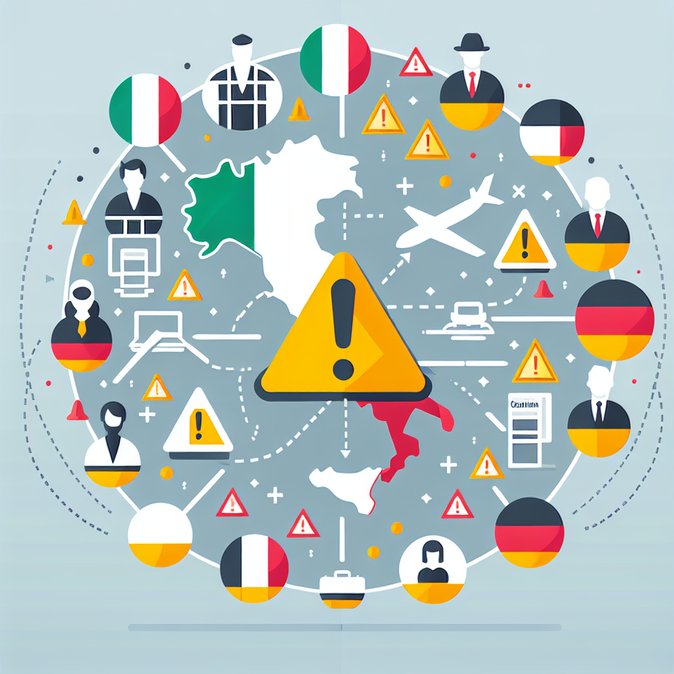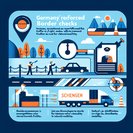
Italy’s foreign ministry updated its global travel advisories on 5 November, adding Germany—along with China, Thailand, Saudi Arabia and Vietnam—to a roster of destinations requiring “heightened vigilance.” The advisory does not discourage travel but highlights elevated protest activity, large-scale events and an overall ‘Level 2’ terrorism risk under Italy’s four-tier system.
For trips to Germany, Italian citizens now receive tailored guidance via the ‘DoveSiamoNelMondo’ portal: carry passports at all times (even within Schengen), expect visible police at Christmas markets and stadiums, and keep contingency plans for train-service disruptions linked to sporadic labour strikes. Business travellers staying longer than 90 days are reminded that a residence registration (Anmeldung) is compulsory within 14 days of arrival and that proof of health insurance is required when applying for an EU Residence Permit.
![Italy Adds Germany to Expanded Travel Advisory Amid Security Concerns]()
The timing coincides with a packed continental calendar, including Champions-League matches and COP30 preparatory meetings in Berlin, which authorities fear could attract demonstrations. While Germany’s national threat level remains unchanged, companies operating cross-border mobility programmes should update duty-of-care protocols, re-circulate emergency contacts and verify that employees have Schengen-compliant travel insurance.
Travel-risk providers note that Italy’s move is part of a broader trend of EU governments issuing more granular, event-driven advisories—a reminder that Schengen’s open borders do not negate corporate responsibility for traveller safety. Employers with frequent Italy–Germany itineraries may wish to integrate the new advisory into automated pre-trip approval tools.
For trips to Germany, Italian citizens now receive tailored guidance via the ‘DoveSiamoNelMondo’ portal: carry passports at all times (even within Schengen), expect visible police at Christmas markets and stadiums, and keep contingency plans for train-service disruptions linked to sporadic labour strikes. Business travellers staying longer than 90 days are reminded that a residence registration (Anmeldung) is compulsory within 14 days of arrival and that proof of health insurance is required when applying for an EU Residence Permit.

The timing coincides with a packed continental calendar, including Champions-League matches and COP30 preparatory meetings in Berlin, which authorities fear could attract demonstrations. While Germany’s national threat level remains unchanged, companies operating cross-border mobility programmes should update duty-of-care protocols, re-circulate emergency contacts and verify that employees have Schengen-compliant travel insurance.
Travel-risk providers note that Italy’s move is part of a broader trend of EU governments issuing more granular, event-driven advisories—a reminder that Schengen’s open borders do not negate corporate responsibility for traveller safety. Employers with frequent Italy–Germany itineraries may wish to integrate the new advisory into automated pre-trip approval tools.









